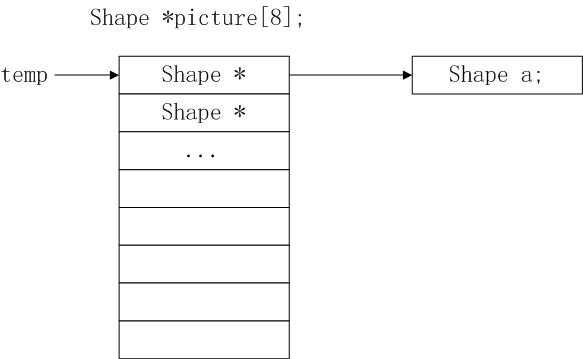标签:
1)众所周知,抽象类是不存在对象的,只提供接口而不提供实现。但是抽象类能不能作为一个类指针,指向其子类的对象呢?
class Interface { public: virtual void fun() = 0; }; class Implement: public Interface { public: void fun() { cout<<"This is Implement object."<<endl; } }; int _tmain(int argc, _TCHAR* argv[]) { Interface *obj = new Implement(); obj->fun(); return 0; }
结论:能。抽象类不能拥有自己的类对象,但是,可以定义抽象类指针指向其子类的对象。
2)指向指针的指针 两种最常见的情形:(数组的名字会退化成其首元素的指针。)
2.1 指针数组:
class Shape { public: void testFunc() { cout<<"Shape::testFunc()"<<endl; } //... }; Shape *picture[10]; int _tmain(int argc, _TCHAR* argv[]) { Shape **temp = picture; Shape *p = *temp; p->testFunc(); return 0; }

2.2
void scanTo(const char **p, char ch) { while (**p && **p != ch) { ++*p; } } int _tmain(int argc, _TCHAR* argv[]) { char s[] = "hello, World"; const char *cp = s; scanTo(&cp, ‘,‘);//将指针cp移动第一个“,”出现的位置 cout<<*cp<<endl; return 0; }
3)
标签:
原文地址:http://www.cnblogs.com/wiessharling/p/4782324.html